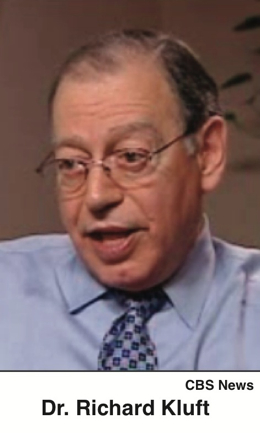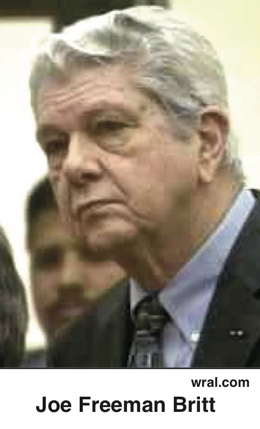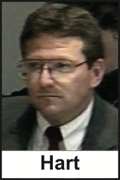Rascals case in brief
In the beginning, in 1989, more than 90 children at the Little Rascals Day Care Center in Edenton, North Carolina, accused a total of 20 adults with 429 instances of sexual abuse over a three-year period. It may have all begun with one parent’s complaint about punishment given her child.
Among the alleged perpetrators: the sheriff and mayor. But prosecutors would charge only Robin Byrum, Darlene Harris, Elizabeth “Betsy” Kelly, Robert “Bob” Kelly, Willard Scott Privott, Shelley Stone and Dawn Wilson – the Edenton 7.
Along with sodomy and beatings, allegations included a baby killed with a handgun, a child being hung upside down from a tree and being set on fire and countless other fantastic incidents involving spaceships, hot air balloons, pirate ships and trained sharks.
By the time prosecutors dropped the last charges in 1997, Little Rascals had become North Carolina’s longest and most costly criminal trial. Prosecutors kept defendants jailed in hopes at least one would turn against their supposed co-conspirators. Remarkably, none did. Another shameful record: Five defendants had to wait longer to face their accusers in court than anyone else in North Carolina history.
Between 1991 and 1997, Ofra Bikel produced three extraordinary episodes on the Little Rascals case for the PBS series “Frontline.” Although “Innocence Lost” did not deter prosecutors, it exposed their tactics and fostered nationwide skepticism and dismay.
With each passing year, the absurdity of the Little Rascals charges has become more obvious. But no admission of error has ever come from prosecutors, police, interviewers or parents. This site is devoted to the issues raised by this case.
On Facebook
Click for earlier Facebook posts archived on this site
Click to go to
Today’s random selection from the Little Rascals Day Care archives….
Click for earlier Facebook posts archived on this site
Click to go to
Today’s random selection from the Little Rascals Day Care archives….
C’mon, Dr. Kluft, aren’t you proud of your role?
 Feb. 24, 2014
Feb. 24, 2014
Why would Dr. Richard Kluft “take exception to” and “(raise) the issue of legal liability” over “When Psychiatry Battled the Devil”?
It’s not as if the record of Kluft’s involvement in promoting “satanic ritual abuse” and “multiple personality disorder” could be any longer or better-documented.
And it’s certainly not as if he has ever acknowledged the error of his ways.
In this exchange from a 2009 interview on CBS “Sunday Morning” he confidently posits a nationwide epidemic of undiagnosed cases of MPD:
Tracy Smith: So do you think that there are, what, thousands of people walking around out there with MPD who don`t even know it?
Kluft: Oh, easily.
Smith: Tens of thousands?
Kluft: Easily.
Smith: Hundreds of thousands?
Kluft: Easily.
Smith: Millions?
Kluft: We might be at that level.
Passing off such fantasy as expertise would be knee-slappingly funny, of course, had it not typified the thinking that fostered scores of wrongful prosecutions and ruined thousands of lives….
I remain baffled – what exactly has Richard Kluft done to deserve such obeisance from Psychiatric Times?
Investigation without end, injustice without end?
 May 8, 2015
May 8, 2015
“A new investigation by the governor into ‘culpability’ has some concerned that he may be caving to the political pressure inherent in the pardon process – particularly given the exhaustive review and judicial imprimatur that the (Henry) McCollum and (Leon) Brown cases have already received.
“The original prosecutor, Joe Freeman Britt, has publicly opposed any pardon for the men. ‘There is no doubt in my mind that they’re not entitled to a pardon, and there in no doubt in my mind that they’re not entitled to compensation for the taxpayers,’ he said in the March (16) New York Times story.
“But attorneys involved in the case and other who work in this area say that the governor’s work has already been done for him.
“ ‘A district attorney would not have consented to their innocence, and a judge would not have put innocence in their order, if there was any level of culpability,’ said Chris Mumma, executive director of the North Carolina Center on Actual Innocence….”
– From “Begging for a pardon: Why some of the wrongfully convicted could go penniless” by Sharon McCloskey at NC Policy Watch (May 6)
Now that Gov. McCrory has returned from the Global Gourmet Games, perhaps he is at last bringing his ‘culpability’ investigation to an end. But the question remains: Why did he open it in the first place? Why was it appropriate to add eight months to North Carolina’s brutal mistreatment of McCollum and Brown? Surely, it wasn’t an effort to satisfy the notorious Joe Freeman Britt!
Bill Hart used day-care moms as dating pool
 Aug. 6, 2012
Aug. 6, 2012
Let’s say you were a special deputy attorney general called in from Raleigh to help prosecute the Little Rascals case. Now imagine: What would be the most inappropriate, the most ethically questionable way you could possibly spend your spare time in Edenton? How about starting to date the mother of one of the alleged victims?
Yes, that’s exactly what Bill Hart chose to do. He and Patricia A. Kephart had been involved for months even before Bob Kelly’s trial began.
Readers of this blog won’t be surprised to learn that Hart denied any impropriety and blamed the defense for trying “to divert attention from the case.”
But Rich Rosen, professor of criminal procedure at the UNC Chapel Hill School of Law, told the News & Observer of Raleigh (Dec. 20, 1991) that “It certainly raises questions in my mind. A prosecutor is not supposed to have any personal involvement or interest in the case.”
One question raised in my own mind: Unlikely, yes, but what if Hart had experienced a pang of doubt about the validity of the prosecution’s case? Would he have been able to admit that to his girlfriend (much less to his fellow prosecutors)?
At the conclusion of the state’s case, prosecutors dropped charges related to Kephart’s daughter. Hart and Kephart later married.
‘Too many therapists with too little expertise’
Sept. 11, 2013
“Why did the epidemic of day care hysteria happen just when and where it did? Why in 1982? Why in the United States?…. You can’t have a panic about day care centers unless you have day care centers. These had become a necessary fixture of American life as more mothers entered the work force, families traveled far distances to chase available jobs and there were fewer available grandmothers to help babysit. Undoubtedly parental guilt in turning over parental responsibility played a role.
“Among therapists, there was concern over previously not taking seriously enough the statements of kids who had actually experienced sexual abuse. There were also too many therapists with too little expertise who were able nonetheless to self-promote and gain authority as fake ‘experts.’ This sad episode is the clearest caution imaginable to any therapist feeling the impulse to jump onto a current or future fad bandwagon.”
– From “Saving Normal: An Insider’s Revolt Against Out-of-Control Psychiatric Diagnosis, DSM-5, Big Pharma, and the Medicalization of Ordinary Life” by Allen Frances (2013)
Despite Dr. Frances’s timidity in exposing the “complete bunk” of multiple personality disorder, his influence across psychiatry is undisputed. But will his words be sufficient to deter the next generation of overreaching therapists from jumping onto the “fad bandwagon”?











0 CommentsComment on Facebook